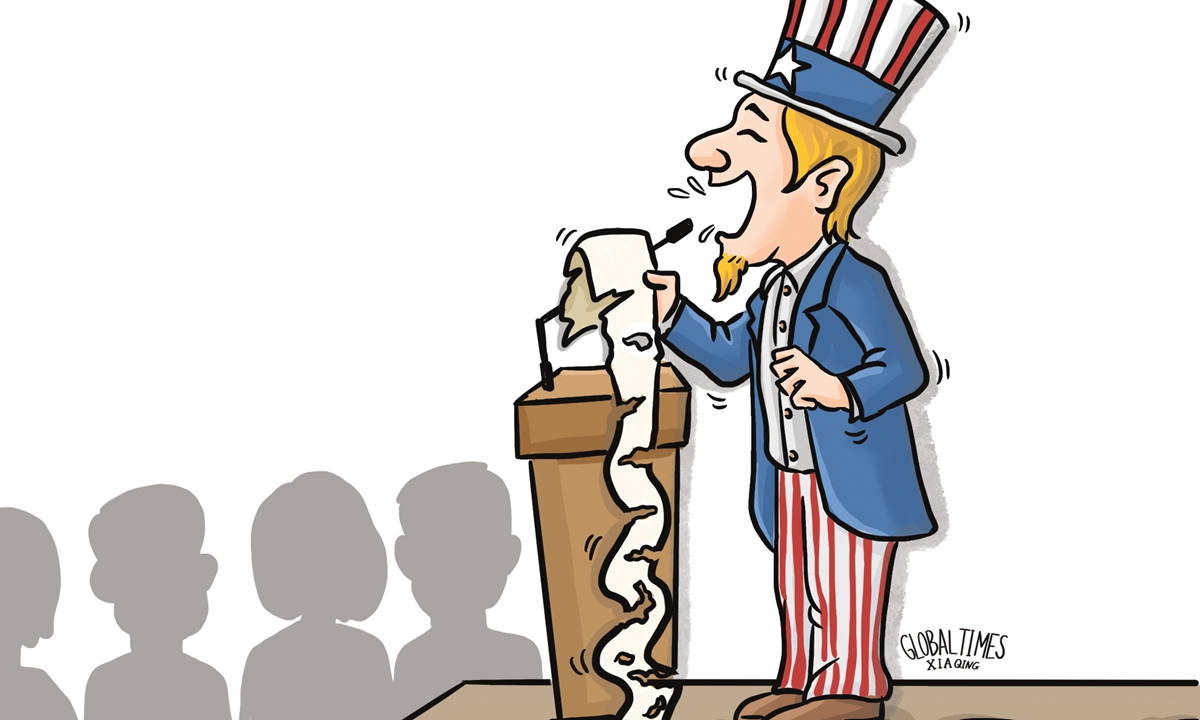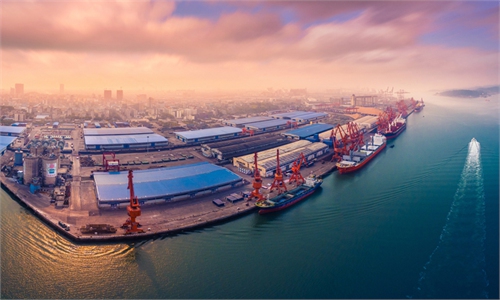US attempt to unite Southeast Asian nations against China via US-ASEAN summit a ‘wild goose chase’

US has no feasible plan to help ASEAN 'build back better'. Illustration: Xia Qing/GT
Countering China will dominate the US-ASEAN summit to be held by the US in mid-May, media speculated. Yet experts predicted uniting the bloc to stand against China will be another "wild goose chase" by the US as the region has been extremely cautious of clearly taking sides amid the complicated international situation.
US President Joe Biden will host the Association of Southeast Asian Nations (ASEAN) leaders in Washington, DC on May 12 and 13 for a US-ASEAN Special Summit, the White House announced on Saturday.
It is widely anticipated that containing China would be a major topic at the summit, yet Lü Xiang, a research fellow at the Chinese Academy of Social Sciences, pointed out that it would in fact be difficult for the US to instigate ASEAN members into conflict with China at a multilateral summit.
"Almost no ASEAN members have a strong negative view of China, " Lü told the Global Times. "Even if there are some minor conflicts, both sides are restrained and want to resolve them through negotiations."
The US is more likely to try to divide these countries by exploring the so-called values-related issues, Lü noted.
"The US will try to divide some countries into what they see as the 'democratic camp,' implying that they can have a better future with the US. But if the US is bent on dividing the camps, it is also a situation that ASEAN does not want to see."
In a comment published by his office in early April, Singaporean Prime Minister Lee Hsien Loong warned the US against isolating China over the war in Ukraine by framing it as a battle between "democracies" and "autocracies," which would complicate an already frayed relationship between the two powers.
The summit was originally set for March 28 and 29 before being delayed without a new date, after the agenda of some ASEAN members clashed with US' unilateral decision and they threatened to withdraw from the summit.
In fact, the protests of ASEAN members against the summit schedule in March were only a partial reflection of the region's attitude toward the US for some time, according to Lü.
The negative attitude toward US interference can also be seen through a series of recent events - only Singapore among all ASEAN members supported the US on the issue of sanctions against Russia, and after the postponement of the March summit, the foreign ministers of four ASEAN members chose to visit China, while only one visited the US.
Scholars pointed out the US' upcoming Indo-Pacific Economic Framework attempt to use ASEAN as a breakthrough to encircle China will likely end up going against its own wishes.
During the COVID-19 pandemic, China's trade with ASEAN showed a counter-trend growth. In 2021, China's trade in goods with ASEAN recorded a 28.1 percent growth year-on-year, with China's exports to ASEAN 26.1 percent year-on-year and imports up 30.8 percent year-on-year.
ASEAN has become China's largest trading partner for two consecutive years, reflecting the resilience and great potential of China's cooperation with ASEAN.
In terms of regional stability, China's diplomacy starts with defusing conflicts, while the US has always pinned its hopes on creating regional conflicts, as also witnessed by ASEAN members.
In a region that has always enjoyed peace, China's values and worldview would be recognized, Lü said.

